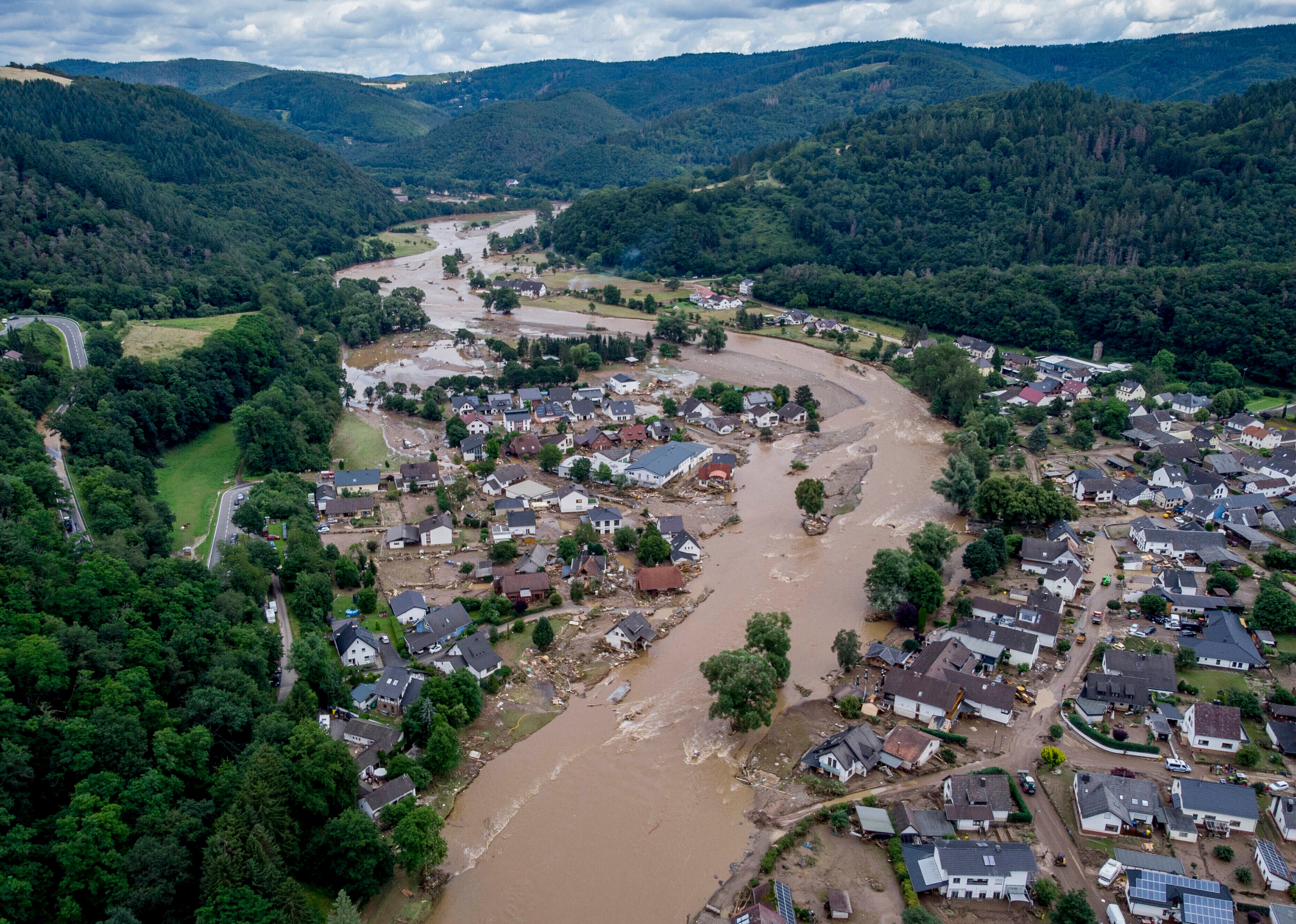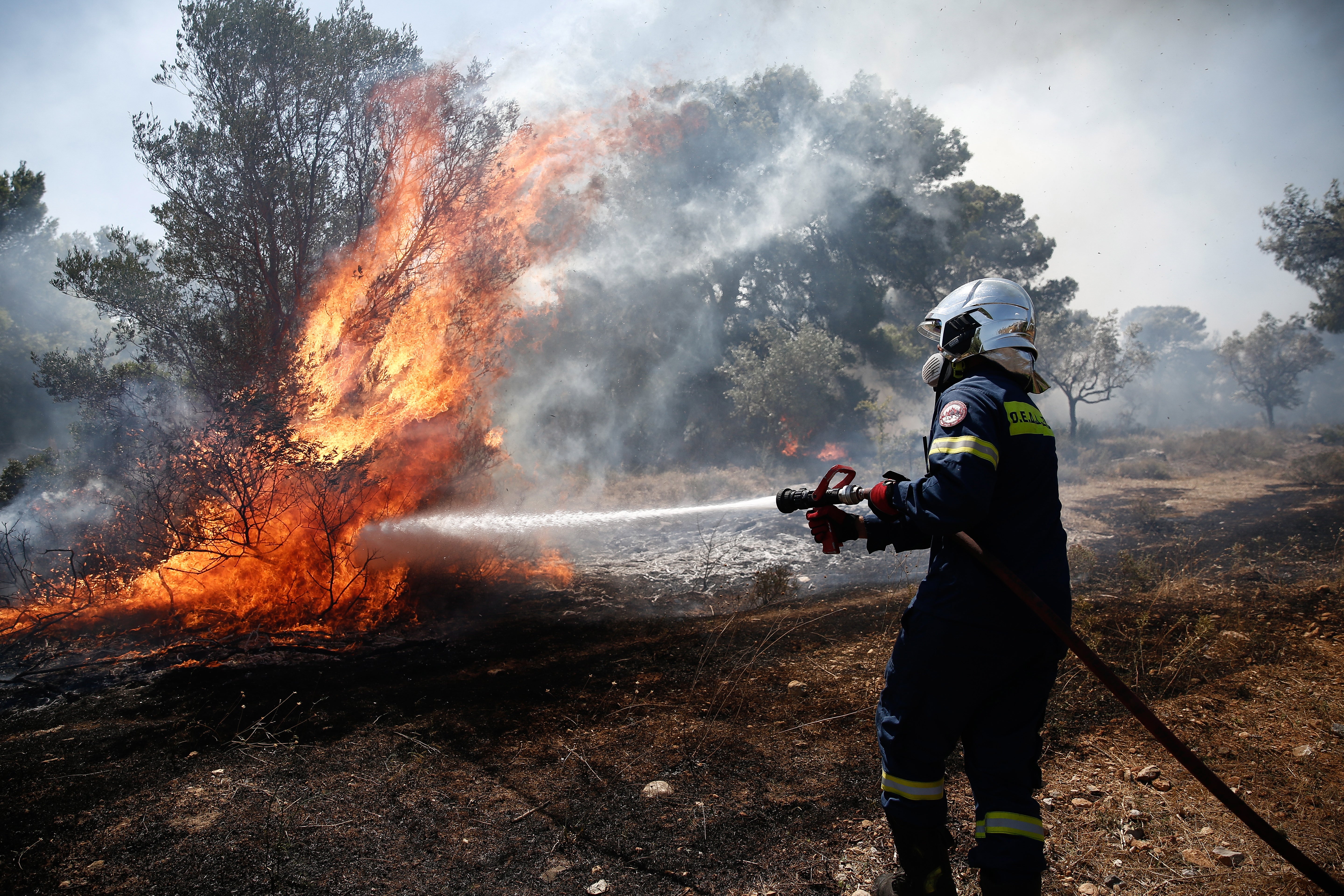Temperatures in Europe soar beyond twice global average in 30 years
Heat, fires and floods to worsen across continent as global warming raises temperatures by half a degree a decade

Heatwaves, wildfires, flooding and loss of snow and ice are all on course to be exacerbated in Europe as average temperatures across the continent have increased at twice the global average over the past 30 years, the World Meteorological Organisation has warned.
In its State of the Climate in Europe report released on the eve of the United Nations’ Cop27 climate summit, the WMO said the rate of warming recorded in Europe was the highest of any continent in the world.
The analysis, which was produced jointly with the EU’s Copernicus Climate Change Service, warned that temperatures across Europe “have warmed significantly” over the 1991-2021 period, at an average rate of about +0.5C per decade.
As a result, alpine glaciers have lost around 30 metres in ice thickness from 1997 to 2021, while the Greenland ice sheet is melting and contributing to accelerated sea level rise.
The analysis, which focuses on the year 2021, found that in that year, extreme weather and other climate events “led to hundreds of fatalities, directly affected more than half a million people and caused economic damages exceeding $50bn (£43bn).
“About 84 per cent of the events were floods or storms,” the authors said.
“This year, like 2021, large parts of Europe have been affected by extensive heatwaves and drought, fuelling wildfires. In 2021, exceptional floods caused death and devastation,” said the WMO’s secretary-general Petteri Taalas.
“Europe presents a live picture of a warming world and reminds us that even well-prepared societies are not safe from impacts of extreme weather events,” he said.

But the service said their assessment showed “it’s not all bad news” for the continent.
Some countries have made meaningful headway towards cutting greenhouse gas emissions, the WMO said, highlighting that in the EU, greenhouse gas emissions decreased by 31 per cent between 1990 and 2020, with a net 55 per cent reduction target for 2030.
Europe has tended to adapt well to the “formidable” challenges posed by the climate crisis.
The continent has good cross-border cooperation in climate change adaptation, the WMO said, “in particular across transnational river basins”.
They said Europe remains one of the world leaders in providing effective early warning systems, with about 75 per cent of people protected, while heat-health action plans have saved many lives from extreme heat.
Dr Carlo Buontempo, director of the Copernicus Climate Change Service, said: “European society is vulnerable to climate variability and change, but Europe is also at the forefront of the international effort to mitigate climate change and to develop innovative solutions to adapt to the new climate Europeans will have to live with.
“As the risks and impact of climate change become increasingly apparent in day-to-day life, the need and the appetite grow for climate intelligence, and rightly so. With this report we aim to bridge the gap between the data and the analysis to provide science-based but accessible information that is ‘decision-ready’ across sectors, across professions,” he said.
Weather, climate and water-related disasters are all projected to increase in the future, the authors said, citing the IPCC’s most recent analysis.
They said they had “high confidence” temperatures will rise in all European areas at a rate exceeding global mean temperature changes.
Meanwhile, the frequency and intensity of heatwaves, including marine heatwaves, have increased in recent decades and are projected to keep increasing “regardless of the greenhouse gas emissions scenario”.
Across the region, the report warns that various “critical thresholds” for ecosystems and humans are on track to be exceeded.
Other key alterations to the climate include less rainfall in summer and more in winter.
Join our commenting forum
Join thought-provoking conversations, follow other Independent readers and see their replies
Comments
Bookmark popover
Removed from bookmarks